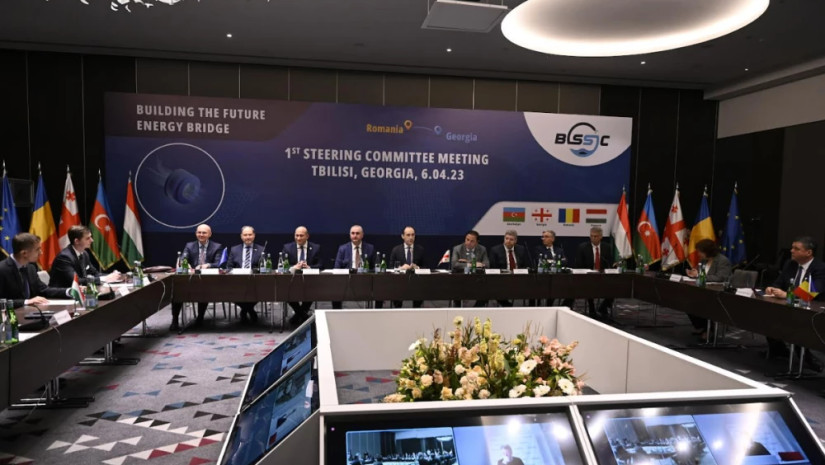Officials from Georgia, Azerbaijan, Romania and Hungary on Thursday met in the Georgian capital city of Tbilisi to discuss various stages of the implementation of the Black Sea submarine electricity cable project, a new transmission route to deliver green energy from Azerbaijan to Europe, the Georgian Ministry of Economy announced.
At the meeting, Georgian officials shared the first results of the feasibility study of the project and discussed the next stages of its implementation with their counterparts.
Economy Minister Levan Davitashvili said additional studies were required this year in order to have a “complete picture” of how the project should be implemented.
"It is very important to coordinate at a high level between the countries in order for the project to be effectively implemented”, Davitashvili said after the meeting.
George Niculescu, the State Secretary in the Romanian Ministry of Energy, said the project was an opportunity for Europe and the Caspian Sea countries to be better connected with each other.
"The part of the project that will pass through the Black Sea is extremely important and, at the same time, the most difficult part. It will be the longest submarine cable ever built. So, from a technical point of view, this is a real challenge and I hope the companies that will implement this project will do a very good job”, Niculescu said.
Peter Szijjártó, the Hungarian Minister of Trade and Foreign Affairs, said his country was interested in energy diversification to ensure “security of supply and green, environmentally friendly solutions”.
"We really appreciate Georgia's ambitious approach to the implementation of this project [and] we are ready to participate in the feasibility study. We hope that our Georgian friends will be able to fulfil the plan of providing a record-breaking, almost 1,200 km long submarine cable”, he said.
The four countries signed the project in December, with the projected infrastructure enabling the countries of the South Caucasus and Romania to take advantage of “broadened export opportunities” and trade in electricity at hourly market prices.
The next meeting between the sides is scheduled to be held in Bucharest, Romania.












